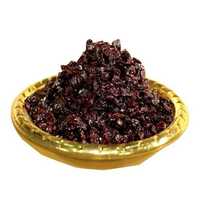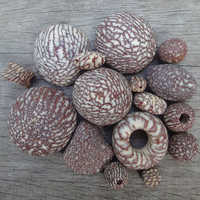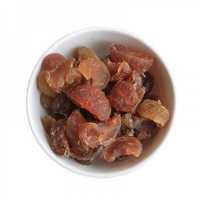Pan Masala
(499 products)
Explore More Categories
Made in India
Finest Gulkand
15 Years
Business Type: Manufacturer | Supplier
SHUBHAM NATURAL FRAGRANCES
Made in India
Premium Sweet Supari Compound
16 Years
Business Type: Manufacturer | Distributor
MEENA PERFUMERY
Supari
13 Years
Business Type: Manufacturer | Distributor
SHRI GANESH PRASAD TRADERS
Humdum Outer Pouch
12 Years
Business Type: Manufacturer
ALKA FOODS PVT. LTD.
Any Betel Nut Supari
Price: 415 INR (Approx.)/Kilograms
MOQ - 1000 Kilograms/Kilograms
Type - White Rice
Cultivation Type - Organic
Style - Fresh
Business Type: Manufacturer | Distributor
H.B.Lotus enterprise
Supari Dust Powder
MOQ - 100 Kilograms/Kilograms
Business Type: Manufacturer | Supplier
SIDDESHWARA ENTERPRISES
Sweet Supari Feature Excellent Aroma
Price: 150 INR (Approx.)/Kilograms
MOQ - 110 Kilograms/Kilograms
Product Type - makhana
Cultivation Type - Organic
Style - Fresh
Business Type: Supplier | Trading Company
Abu Sufiyan Traders
Red Boiled Split Supari
Price: 540 INR (Approx.)/Kilograms
MOQ - 100 Kilograms/Kilograms
Business Type: Supplier | Trading Company
GANPATH TRADERS
99.9% Pure A Grade Sapna Scented Supari For Mouth Freshening
Price: 8000 INR (Approx.)/Kilograms
MOQ - 30 Kilograms/Kilograms
Business Type: Manufacturer | Supplier
ASHOK AND COMPANY
Fresh Refreshing Sweet Rose Lachha Supari
Price: 480 INR (Approx.)/Kilograms
MOQ - 25 Kilograms/Kilograms
Business Type: Manufacturer | Distributor
Prashiv Exports
Supari
Price: 350000 INR (Approx.)/Metric Ton
MOQ - 1 Metric Ton
Business Type: Manufacturer | Distributor
BIDESH ENTERPRISE
Sweet Supari
Business Type: Manufacturer | Supplier
THE TOTAGARS CO-OP SALE SOCIETY LTD
Organic Supari For Mouth Freshener(Gluten Free And Anti Cavity Effect)
Business Type: Supplier | Exporter
OVICA'S HEALTH GENIOUS RESEARCH PRIVATE LIMITED
Indian Inquiries Only
Premium Quality Fresh Flavorful and Aromatic Betel Nut (Supari)
Price: 450 INR (Approx.)/Kilograms
MOQ - 65 Kilograms/Kilograms
Business Type: Manufacturer | Exporter
Darshan Enterprise
Betel Nut Size: Lxw : 10X8 Inch.
Business Type: Exporter | Trading Company
Oyster Exim
Muti Color Sweet Syoar For Mouth Freshner Use
Business Type: Manufacturer | Supplier
Aman Trader
Pan Masala Red Kattha Powder
MOQ - 500 Kilograms/Kilograms
Color - Brown
Business Type: Supplier | Trading Company
Ravi Pan Masala
Betel Nut
Business Type: Manufacturer | Supplier
SHAKTI SHIPPING INTERNATIONAL
Red Supari Packaging: Box
Price: 350 INR (Approx.)/Kilograms
MOQ - 45 Kilograms/Kilograms
Product Type - Red Supari
Style - Dried
Shape - Other, Piece
Business Type: Distributor | Trading Company
Sri Vinayaka Betelnut Traders
Indian Supari
Price: 510 INR (Approx.)/Kilograms
MOQ - 100 Kilograms/Kilograms
Business Type: Distributor | Supplier
Annapurna Trader
Samna Supari
Price: 60 (Approx.)/Pack
MOQ - 200 Pack/Packs
Business Type: Manufacturer
DINANATH DHARAMPAL
Ras Bahar Sweet Scented Supari
Price: 70 INR (Approx.)/Pack
MOQ - 10 Pack/Packs
Business Type: Distributor
Puja Datta & Co.
Milky Supari
Business Type: Manufacturer | Distributor
HOPE AND CO.
Sesame Mouth Freshener
Business Type: Manufacturer | Exporter
B. N. EXPORTS PVT. LTD.
Boiled Red Supari / Arecanut / Betelnut (Lal Supari) (Chikni)
Price: 550 INR (Approx.)/Kilograms
MOQ - 500 Kilograms/Kilograms
Product Type - Boiled Red Supari
Cultivation Type - Organic
Variety - Raw
Business Type: Distributor
Soham Sales
Betel Nuts
Business Type: Distributor | Exporter
RR BUSINESS PVT. LTD.
Flavoring Compounds
Business Type: Supplier | Trading Company
JNJ International
Easy To Digest Sweet Supari
MOQ - 50 Kilograms/Kilograms
Business Type: Manufacturer | Supplier
Shivam Enterprises
Pan Masala Manufacturers | Suppliers in India
| Company Name | Location | Member Since |
|---|---|---|
| Meena Perfumery | Kannauj, India | 16 Years |
| Shubham Natural Fragrances | Kannauj, India | 15 Years |
| Shri Ganesh Prasad Traders | Yellapur, India | 13 Years |
| Alka Foods Pvt. Ltd. | Delhi, India | 12 Years |
What is Paan Masala?
Pan Masala is a balanced mixture of betel leaf with lime, areca nut, clove, cardamom, mint, tobacco, essence and other ingredients. It is an agricultural product with herbal properties, also available in hygienic pack and pouches. It acts as a mouth freshener and unlike other Western synthetic pan masala made with chemical and petroleum ingredients, the Indian pan masala is safe. But excessive use may have adverse effect.  Available in brands in India like 'Raj Darbar', 'Paan Bahar', 'Goga', 'Rajnigandha', 'Tulsi', the paan masala is consumed by all age groups and social classes.
Available in brands in India like 'Raj Darbar', 'Paan Bahar', 'Goga', 'Rajnigandha', 'Tulsi', the paan masala is consumed by all age groups and social classes.
Most people across the world eat some mouth freshener after their meal or during leisure time. In the western countries, chewing gum is the common practice whereas in the Asian sub continent paan or paan masala is consumed. Today readymade packets of paan masala are available in western countries too. Active Compounds in Paan Masala
Active Compounds in Paan Masala
The active chemical compounds of betel nut are alkaloids called arecaine and arecoline, arecaidine, arecolidine, guracine (guacine), guvacoline, etc. which are comparable to nicotine due to their stimulating and mildly intoxicating characteristics.
What is Paan?
Paan is a type of Indian snack, which consists of fillings of areca nut and pan masala, wrapped in a triangular package using betel leaf that is held together with a toothpick or a clove. It is chewed as a palate cleanser and a breath freshener usually taken after meal and during leisure hours. Paan is available in different flavours, viz. tobacco (tambaku paan), betel nut (paan supari or sada paan), sweet (meetha paan), etc.
Origin
Paan chewing is a tradition which dates back to thousands of years. Scholars of Ayurveda first experimented paan on rats, and found that it was good for digestion. Later, they advocated its use as one of the best means of digestion. Lord Krishna, as mentioned in Shrimad Bhagavatam chewed paan that verifies the existence of paan in India some 5000 years ago.
Noorjahan of the Mughal dynasty started the chewing of paan as a tradition. In olden days, women used natural elements to adorn their personality. Queen Noorjahan discovered that by adding some particular ingredients to the paan and eating it gives a fantastic natural red color to the lips. Hence, other than relishing its taste and using it as a mouth freshener, the paan was chewed and eaten by women for reddening the lips, an alternative to the modern day 'lipstick'.
What is Masala?
The term 'masala' refers to the spicy ingredients which one uses as a mixture in cooking, chewing of betel nuts, etc. In paan, the fillings of the masala enhances the taste and flavour, heightening the chewing effect. Paan without paan masala seems tasteless, hence paan and masala are interdependent terms.
The Paan Culture
Paan is consumed by an estimated 200-400 million people, mainly Indo-Asians and Chinese. India is the largest consumer of betel nut, or what we call the paan in the world. The culture of paan eating rose to the zenith in North India as a mark of cultural custom and sophistication, especially in Lucknow and the North-east.
The traditional way of paan making, storing and serving draws much attention and awe in the eyes of the beholder. The paan leaves (of a creeper plant) are stored and wrapped in a moist, red colored cloth called 'shaal-baaf', inside a silver or other metal casket called, 'Paan Daan'. The Paan Daan has several compartments with lids built in it, each for storing a different filling or for storing the masala. To serve, a leaf is removed from the wrapping cloth, de-veined, and kattha and choona paste is applied on its surface. This is topped with tiny pieces of betel nuts and paan masala as per a person's taste. The leaf is then folded in a triangular form ready to be eaten. On special occasions, the final serving is wrapped in delicate silver leaf, inserted with a silver pin or toothpick to prevent it from unfolding. Many a paan eater do not swallow the paan; they chew it enjoying its flavours and then spit it into a spittoon.
One point is to be noted here that dried areca nuts sliced into tiny pieces are served, but in Assam, Meghalaya and other regions of the North-east, most of the people chew the raw nut along with betel leaf topped with tobacco and lime.
In Assam, it is a tradition to offer paan known as 'tamul paan' (betel leaves and raw betel nut) to guests after tea or meals in a brass plate with stand called 'bota'. A betel nut in Assam is considered as a symbol of fertility, which is used during religious and marriage ceremonies. It is also a tradition, especially in Upper Assam to invite guests to wedding receptions by offering a few betel nuts with leaves. During Bihu, the dance troupe called 'husori players' who exhibit their art from door to door are offered betel nuts and leaves by each household to seek their blessings.
In Myanmar, paan is termed as 'kun-ya', which is a part of entertaining guests in the household. It is offered to visitors, both men and women together with cheroots to smoke and green tea to drink. In Burma, the nut is called taungoo, and the paan here is deemed an essential item to be offered to monks and elders particularly in their old ages.
In most of the Hindu religious traditions, the raw areca nut along with the betel leaf is offered to the deity as an offering. The betel leaves and areca juices are used ceremonially in Vietnamese weddings. Other than being used as a mouth freshener and after meals, the paan is also served to guests during ceremonies such as weddings, receptions, etc.
Thus, the areca nut and paan leaf, the most important ingredients of paan, have varied regional, religion and cultural significance.
Medicinal Uses
The betel nut in powdered form without the mixture of the masala is used as a constituent in some tooth powders. It is also used for the removal of tapeworms and other intestinal parasites by swallowing a few teaspoons, or by taking as tablets containing the extracted alkaloids.
Status Symbol
Today, paan as well as paan masala stands as a symbol of status and distinction.
Related Categories
Aquatic Products
Asafoetida
Bean Products
Beverages
Canned Food
Cashews
Castor Oil
Cereals
Chocolates
Coconut
Coffee
Confectionery & Bakery Products
Cookies & Biscuits
Dairy Products
Dehydrated Food Products
Dehydrated Vegetables
Dietary Supplements
Dried Vegetables
Drinking Water
Edible Oils & Fats
Edible Salt
Egg Products
Fast-Food
Flavours & Food Additives
Flour
Food Products
Fresh Fruits
Frozen & Dried Fruit
Frozen & Processed Food
Frozen Vegetables
Grain
Health Food
Honey Products
Jaggery & Jaggery Products
Margarine
Marine Products
Meat & Poultry
Molasses
Mouth Freshener
Mushroom & Truffle
Noodles
Nuts & Kernels
Pan Masala
Papad
Pickles & Murabba
Plant & Animal Oil
Pulses
Rice
Saffrons
Seafood
Seeds
Snacks
Spices & Seasonings
Starch & Derivatives
Sugar & Sweeteners
Sweets & Namkeen
Tamarind Products
Tea







